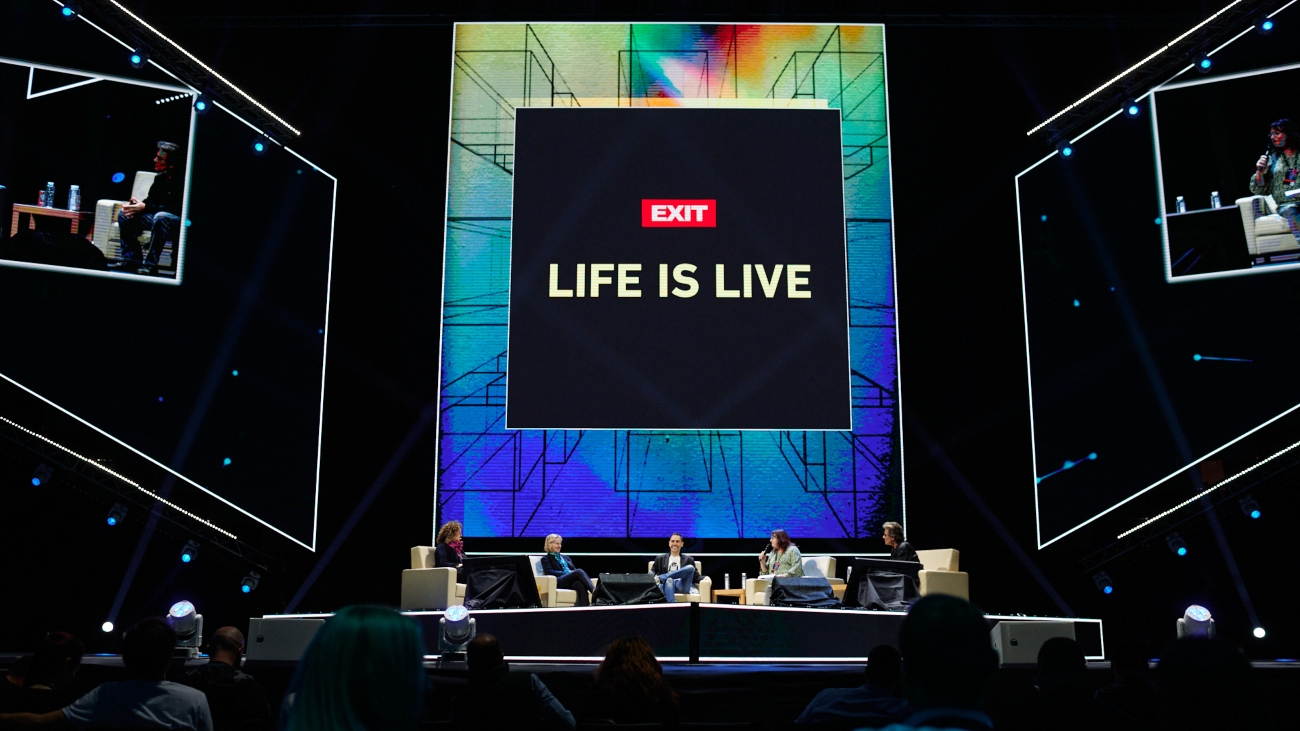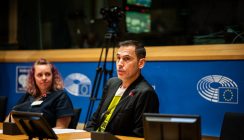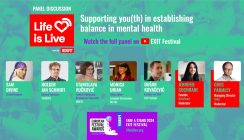This panel also proposed strategies through which the IT sector and the music industry could join forces with social communities in a bid to solve acute problems.
The panel featured musician and expert in digital technology, one of the members of the legendary rock group Pink Floyd, Scott Page, adviser to the Minister of Tourism and Youth for youth policy Snežana Klašnja, UNICEF adviser in the program for the development of adolescents and young people Bojana Jevtović, and founder and director of the EXIT festival group Dušan Kovačević.
The panelists discussed and made predictions about the further development of digital technologies and their benefits, but also about their impact on society as a whole, with a particular focus on the younger population. Experts in the field of mental health, law, youth development, and politics discussed the consequences of replacing real life with the virtual one, especially when it comes to young people, as well as the potential first steps and examples of good practice that can help protect against the harmful effects of the internet.
The founder and director of the EXIT Festival, Dušan Kovačević, pointed out that digital addiction is currently the leading form of addiction, more prominent than all other forms combined, and pointed out that the first step towards a solution is realizing how big this problem actually is. “At the moment, the most important thing is that these problems are still not recognized by the entire professional community. Technology is advancing so fast that the psychology community and mental health professionals cannot perceive how profound and quick all these changes are. The problem existed even when we were only talking about the internet, mobile phones, and social networks. But now, we are entering an era of Web 3, an era of the Metaverse, an era of artificial intelligence. Therefore, everything will be moving even faster, and we need to start talking about this”, concluded Kovačević, and added, “It is necessary to include the development of emotional intelligence into the school curriculum and to talk to children about the importance of compassion.”
Digital technology expert Scott Page emphasized how important this topic is for the further development of the digital world and drew attention to the responsibility of companies. “This is the most important thing we can talk about right now; there is nothing more important than this topic because when you look at what’s going on, you realize that the algorithms have driven us completely mad. The motives of the people who produce these algorithms — that’s what we have to worry about. We need “conscious leaders”; consciousness is really the key to everything. And I believe the true savior in this is someone willing to go on a “journey within,” learning how to get out of the Matrix so they can see what’s going on,” Page said.
UNICEF representative Bojana Jevtović drew attention to the problems of internet security and content curation and pointed out, “Security is a priority — a safe environment, especially a safe virtual environment, which is the ultimate priority on so many levels, even for the children that we are talking about. Content must be age appropriate for children, adolescents, and adults. We must try to manage the ads and the ever-growing amount of content because we cannot erase it. We can’t just make this unavailable to young people; we have to find a way to regulate that digital content.”
Adviser to the Minister of Tourism and Youth for youth policy, Snežana Klašnja, pointed out the importance of the parents’ role in detecting and solving this problem and emphasized that the focus must be on real-life experiences, as opposed to virtual ones. “You can often see young people standing next to each other and communicating on the phone, even when they are together. They’re constantly on their phones, and that’s a problem. Even when they are at home, with their families, both young people and their parents spend most of their free time on computers, on the internet, on mobile phones, and other devices. Parents must talk to their children and focus on spending time together in real life, outside the digital one, through various activities. This is also something that we must think about,” said Klašnja.
The discussion on this topic, which began at the TMRW Conference, started a series of activities through which EXIT will deal with the mental health of young people. As before, promoting mental health, as well as taking care of the psychological well-being of young people, is one of the main goals of the organization, and through festivals, creative industry, and social activism, EXIT will continue to create positive changes in society.






